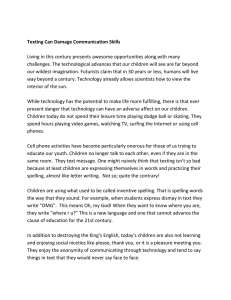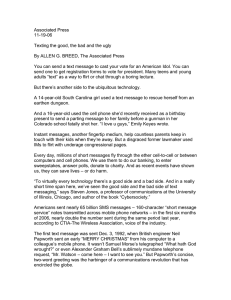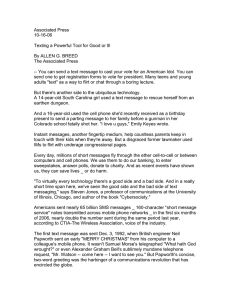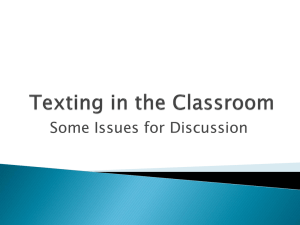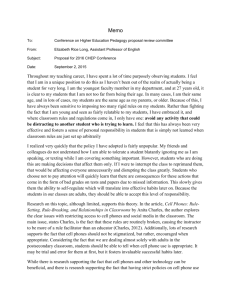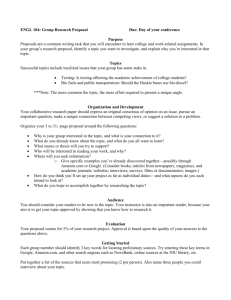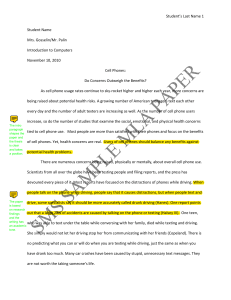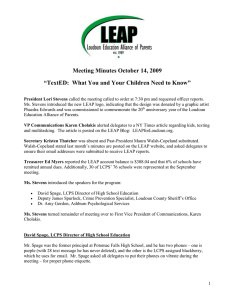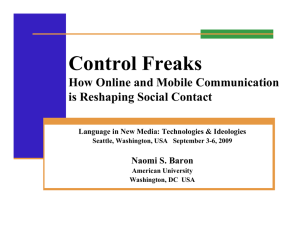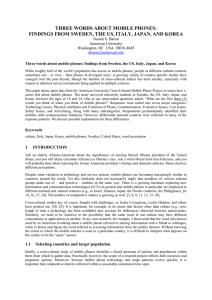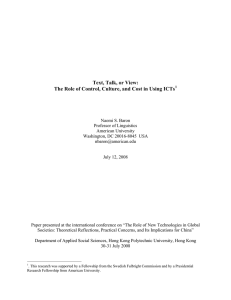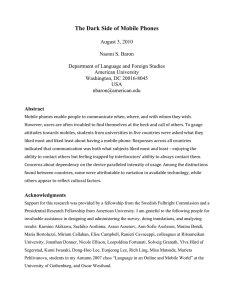An Open Letter to Incoming Freshmen
advertisement
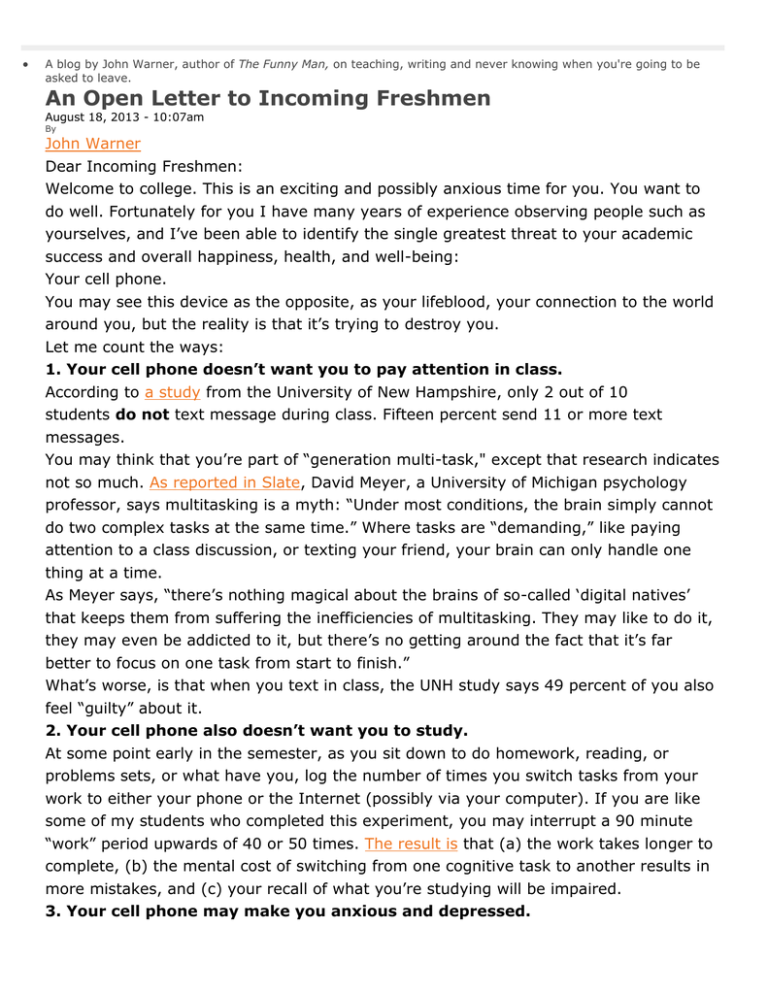
A blog by John Warner, author of The Funny Man, on teaching, writing and never knowing when you're going to be asked to leave. An Open Letter to Incoming Freshmen August 18, 2013 - 10:07am By John Warner Dear Incoming Freshmen: Welcome to college. This is an exciting and possibly anxious time for you. You want to do well. Fortunately for you I have many years of experience observing people such as yourselves, and I’ve been able to identify the single greatest threat to your academic success and overall happiness, health, and well-being: Your cell phone. You may see this device as the opposite, as your lifeblood, your connection to the world around you, but the reality is that it’s trying to destroy you. Let me count the ways: 1. Your cell phone doesn’t want you to pay attention in class. According to a study from the University of New Hampshire, only 2 out of 10 students do not text message during class. Fifteen percent send 11 or more text messages. You may think that you’re part of “generation multi-task," except that research indicates not so much. As reported in Slate, David Meyer, a University of Michigan psychology professor, says multitasking is a myth: “Under most conditions, the brain simply cannot do two complex tasks at the same time.” Where tasks are “demanding,” like paying attention to a class discussion, or texting your friend, your brain can only handle one thing at a time. As Meyer says, “there’s nothing magical about the brains of so-called ‘digital natives’ that keeps them from suffering the inefficiencies of multitasking. They may like to do it, they may even be addicted to it, but there’s no getting around the fact that it’s far better to focus on one task from start to finish.” What’s worse, is that when you text in class, the UNH study says 49 percent of you also feel “guilty” about it. 2. Your cell phone also doesn’t want you to study. At some point early in the semester, as you sit down to do homework, reading, or problems sets, or what have you, log the number of times you switch tasks from your work to either your phone or the Internet (possibly via your computer). If you are like some of my students who completed this experiment, you may interrupt a 90 minute “work” period upwards of 40 or 50 times. The result is that (a) the work takes longer to complete, (b) the mental cost of switching from one cognitive task to another results in more mistakes, and (c) your recall of what you’re studying will be impaired. 3. Your cell phone may make you anxious and depressed. It’s actually social media like Facebook and Instagram that may be doing this, but it’s the smart phone that tethers us (me definitely included) to this universe. While the science is still developing, some studies have shown that people who view pictures and posts of others may experience something called an “envy spiral” as we compare the idealized representation of someone else’s life via social media (“Out for my b-day with my besties and we ran into a shirtless Ryan Gosling!”) with the mundane reality of our own existences (“Studying alone in my crappy dorm room!”). 4. Your cell phone wants you to miss meeting people who will become very important in your life. In the minutes before a class period starts, I always notice that at least 2/3’s of my students are engrossed in their phones, texting, surfing, Candy Crush Saga’ing. But the person you’re destined to spend the rest of your life with may be sitting next to you, except neither of you will know because you’re too busy with your cell phones. I cannot count the number of lasting romances (not to mention the temporary ones) that have been sparked in my classroom. Or forget romance, how about friendships? If you attend a residential college, one of the reasons you or your family are paying a not inconsequential sum, is to be proximate to other human beings. You are among people who could still be part of your lives 50 or 60 years from now. Why not smile and say "hello" to them? 5. Your cell phone may get you hit by a bus. (Or a car, or a bike taxi.) Just last week, I witnessed a near-death experience when a young college student on the campus of the College of Charleston where I work walked in front of an oncoming car at an intersection without a moment’s pause because she was engrossed in her phone. The driver, fortunately, was more vigilant. The student demonstrated a LeBron James-like vertical jump when the car’s horn blared six inches from her ear. The good news is that as much as it may seem otherwise, you are in control of your cell phone. The first step is to be aware of your own habits, and adjust your behaviors accordingly. I find in my own life that I turn to the Internet in moments of fleeting, truly fleeting, distraction, and it becomes a kind of unconscious reflex. One second I'll be writing an insightful blog post for Inside Higher Ed, and the next I'll be reading about that new super-cute raccoonish thing. I don't even remember making the switch. As we fall into these patterns we tend to look at them less and less critically, until we begin to think that it’s just how things are done. But we can break these patterns by choosing to do otherwise. Not coincidentally, these habits of discipline translate well towards productivity and performance. On my computer, I've been using a program called (ironically enough) "Self-control" to limit my Internet access. When you are studying, you can turn your phone off. Try it for even an hour at a time. Nothing is going to happen in that hour that you can’t catch up with later. In class, you can turn your phone off and stow it in your bag. Your professors will appreciate this by not freaking out when they see you texting. You can live happily without checking Facebook, Twitter, or Instagram dozens of times a day. Almost nothing important happens in these virtual spaces ever. As much as it might feel like you’re going to miss something, you aren’t. Think how uneventful your own life is. This is true of just about every other person on the planet. Except Ryan Gosling. That dude is awesome. I bet he goes unicorn riding in his spare time. Just because we – yes, we -- have fallen into these habits, doesn’t mean they can’t be undone. Good luck with the start of your semester. I’m rooting for us. -Is it wrong for me to include a link to my Twitter in a post about the danger of too much interaction with smart phones? Read more: http://www.insidehighered.com/blogs/just-visiting/open-letter-incomingfreshmen#ixzz2cQ3vb42j Inside Higher Ed
